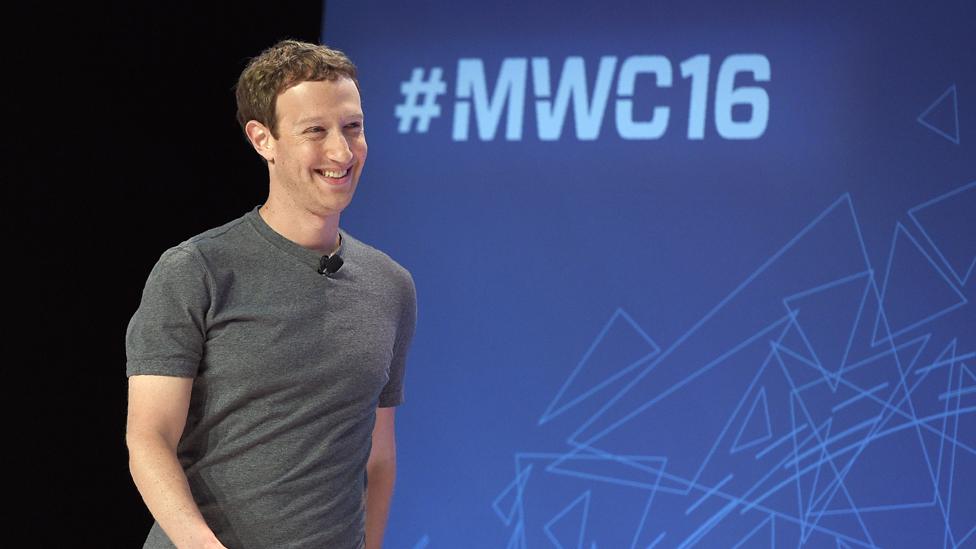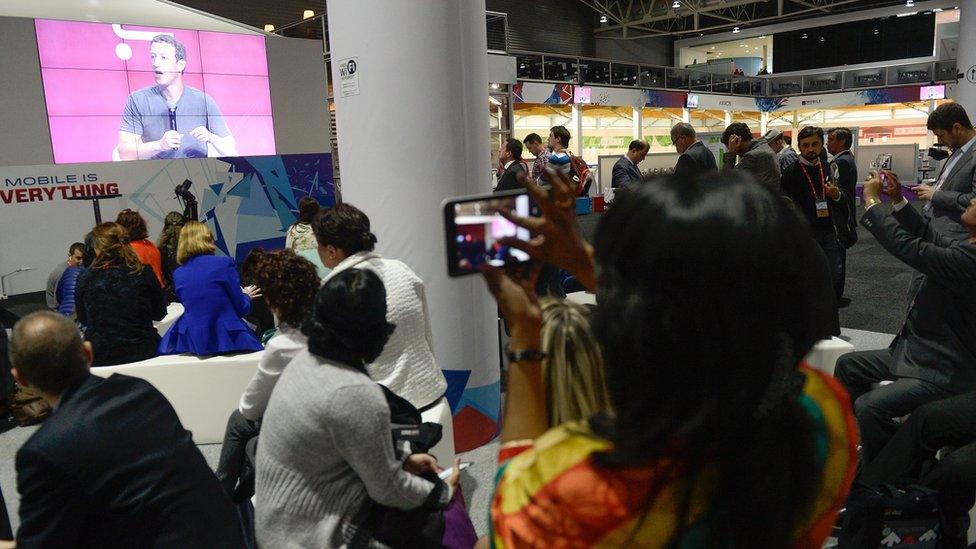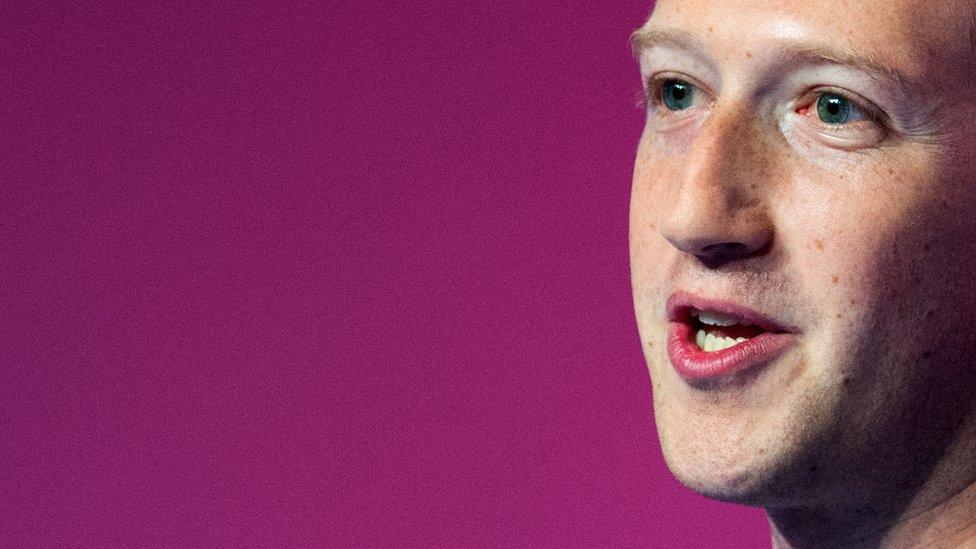MWC 2016: Is Facebook about more than 'making money'?
- Published
- comments

He's the world's wealthiest and most powerful 31-year-old, but he still feels misunderstood. That's what emerged from Mark Zuckerberg's 60-minute chat with a Wired journalist on stage at Mobile World Congress in Barcelona.
Misunderstood in India, where his attempt to give millions their first taste of the internet via Facebook's Free Basics scheme has been banned for offences against net neutrality, a "disappointing" move which taught him that "every country is different". And misunderstood more generally in his passionate mission to use his company to change the world.
"A lot of people think companies don't care about anything but making money," he said, before going on to explain that had not been the motive in setting up Facebook. He'd just wanted to connect people at Harvard, and then found that turning his networking site into a business was the best way to carry that idea further.
When I shared those quotes in a tweet, the reaction was largely cynical. Most people seemed to feel that yes, companies don't care about anything but making money. I don't think that is quite fair - when people say that all businesses are venal or that all politicians are corrupt, I always wonder whether they think that their own motives are somehow pure.

But what is true about Mark Zuckerberg is that his mission to connect the world - which I think is sincere - is also a very profitable business for Facebook. Building drones to take internet connections to remote parts of Africa, investing large sums in virtual reality and making the most detailed map of exactly where people live are all exciting and valuable projects. Deciding that video is now going to be the most important way we communicate - as Zuckerberg said on stage last night - also seems far-sighted.
They are however all ways of drawing more and more people into Facebook's world where all of their needs can be met - and much of their data (anonymised of course) can be handed over the advertisers. By doing great stuff, Mr Zuckerberg's business also ends up making great profits.
So. when he questioned the mobile industry's focus on using next generation 5G networks to connect things, rather than people in developing countries - and got a round of applause in the hall - you might think what a noble sentiment. Or you might think it would serve Facebook's interests better if the networks spent money hooking up more people rather than connecting fridges and cars to the internet.

Some have asked similar questions about Tim Cook and his refusal to unlock a terrorist's iPhone, a stance backed by Mark Zuckerberg here last night. The US government has described the campaign against the court ruling as simply part of Apple's marketing strategy. Now you can be sympathetic to Apple's arguments on encryption, while recognising that an ultra-secure iPhone is a crucial aspect of the company's brand and its future profit path.
Silicon Valley and its leaders live in something of a bubble, amazed that the rest of the world does not always see things its way on issues ranging from the benefits of sharing data online to the primacy of individual privacy over public safety. And that means that Mark Zuckerberg and his fellow tech billionaires are going to continue to find that the world does not always understand them.